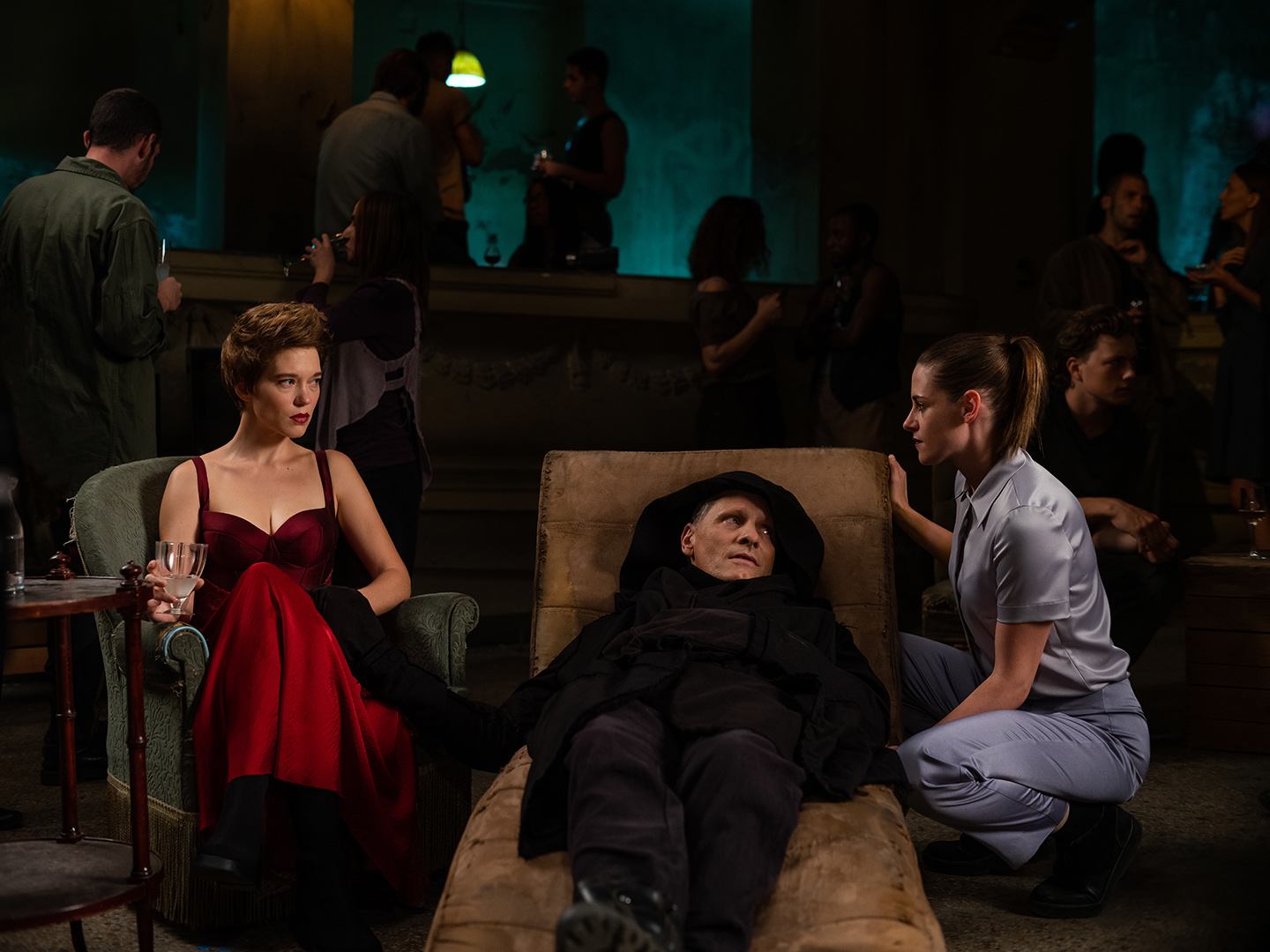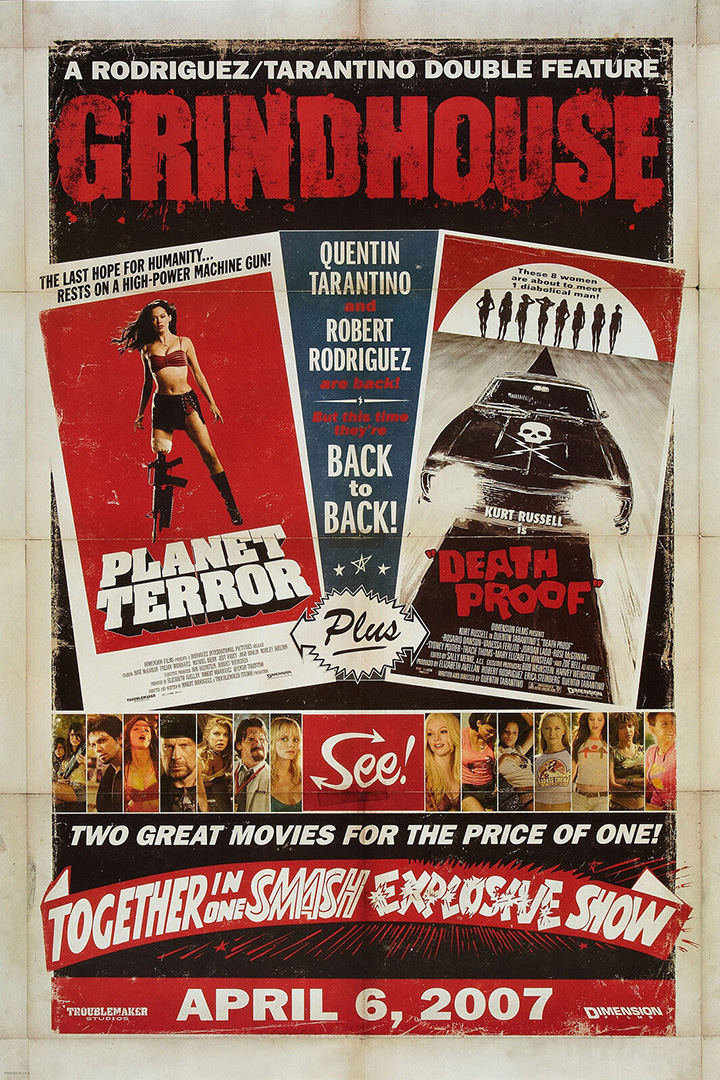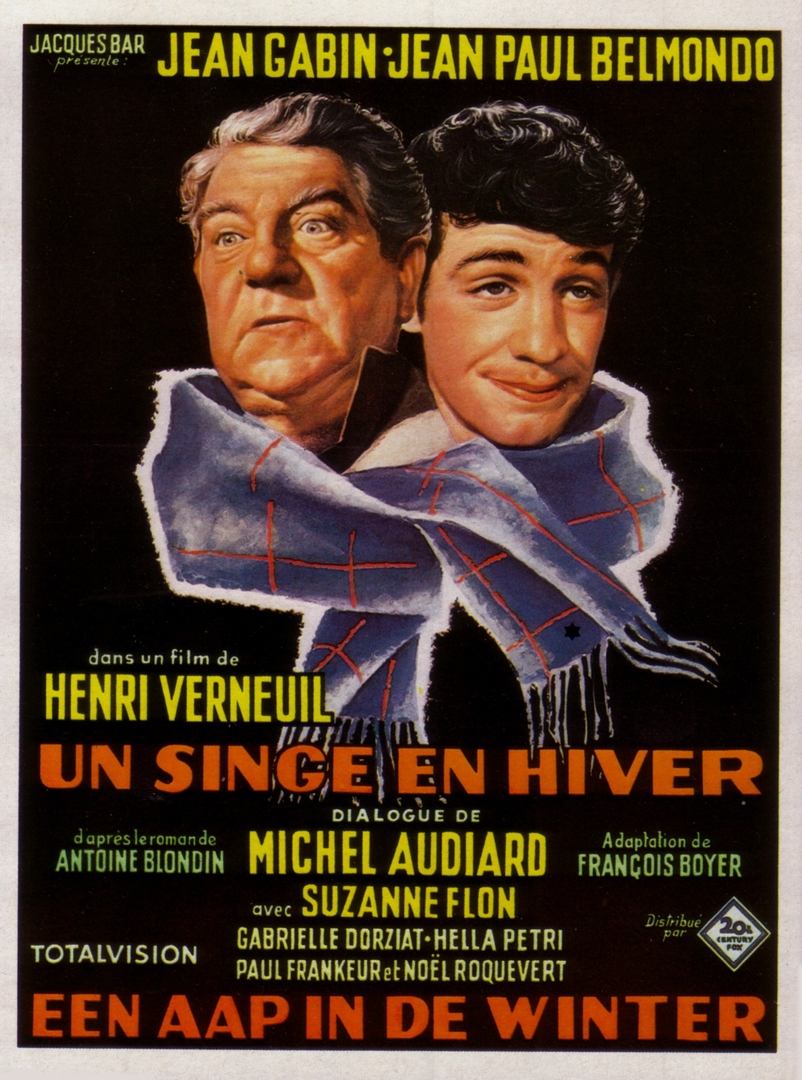Crimes of the Future
The mission of the Centre d'art et essai de la Cinémathèque québécoise (CAECQ) is to primary program Quebec-made documentaries and independent fiction, as well as international documentaries, animated and foreign films, while encouraging opportunities for meetings between the public and the artists. Its programming is presented in conjunction with the Cinémathèque québécoise’s under the label New releases.
Humans adapt to a synthetic environment, with new transformations and mutations. With his partner Caprice, Saul Tenser, celebrity performance artist, publicly showcases the metamorphosis of his organs in avant-garde performances.
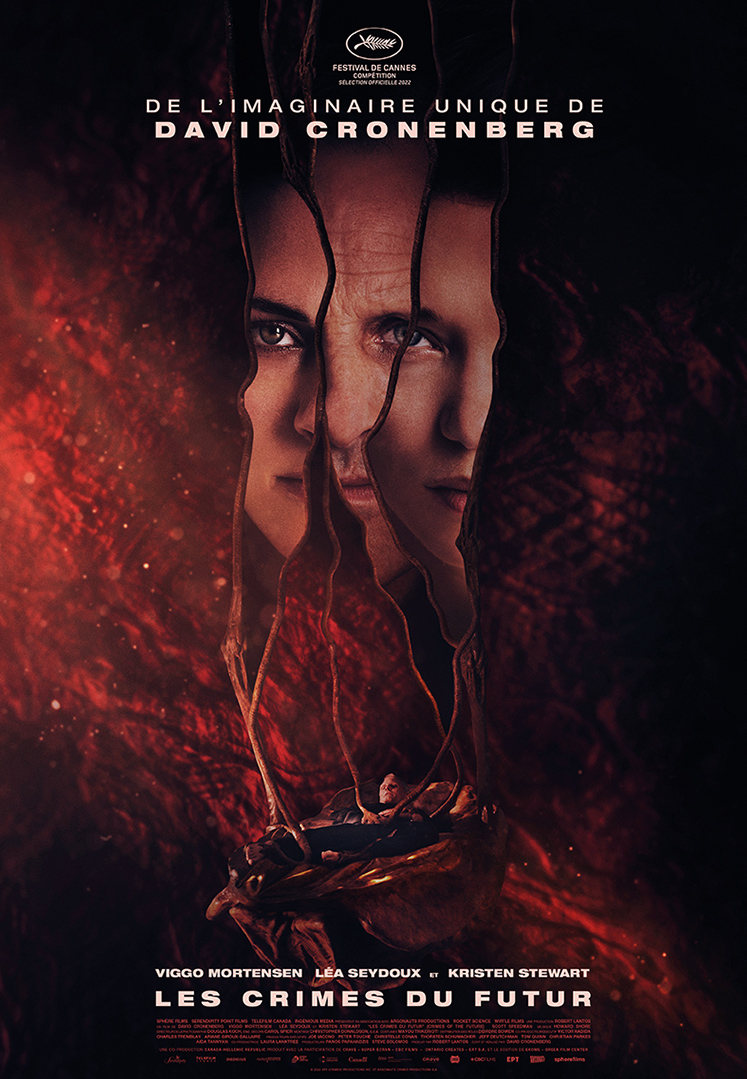
David Cronenberg
David Paul Cronenberg is a Canadian film director, screenwriter, and actor. He is one of the principal originators of what is commonly known as the body horror genre, with his films exploring visceral bodily transformation, infection, technology, and the intertwining of the psychological with the physical. In the first third of his career he explored these themes mostly through horror and science fiction films such as Scanners (1981) and Videodrome (1983), although his work has since expanded beyond these genres. Cronenberg's films have polarized critics and audiences alike; he has earned critical acclaim and has sparked controversy for his depictions of gore and violence. The Village Voice called him "the most audacious and challenging narrative director in the English-speaking world". His films have won numerous awards, including, for Crash, the Special Jury Prize at the 1996 Cannes Film Festival, a unique award that is distinct from the Jury Prize as it is not given annually, but only at the request of the official jury, who in this case gave the award "for originality, for daring, and for audacity".
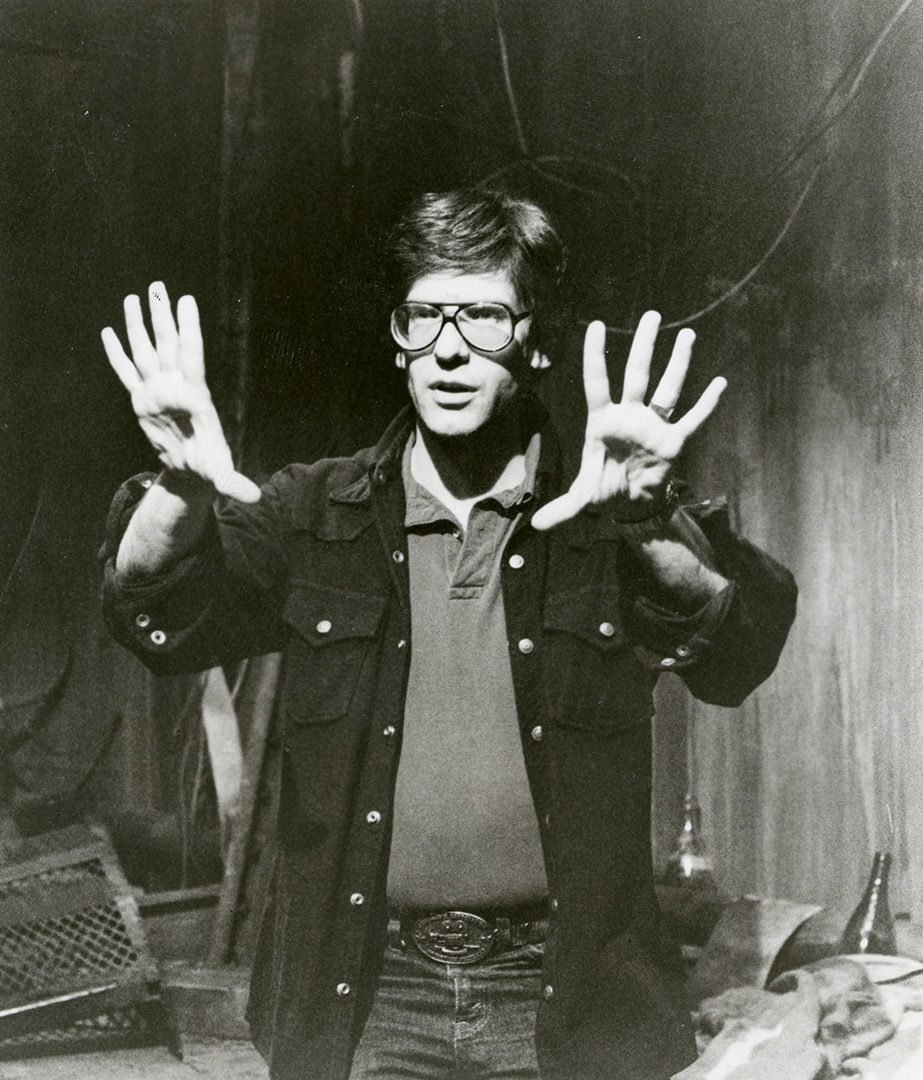
Explore
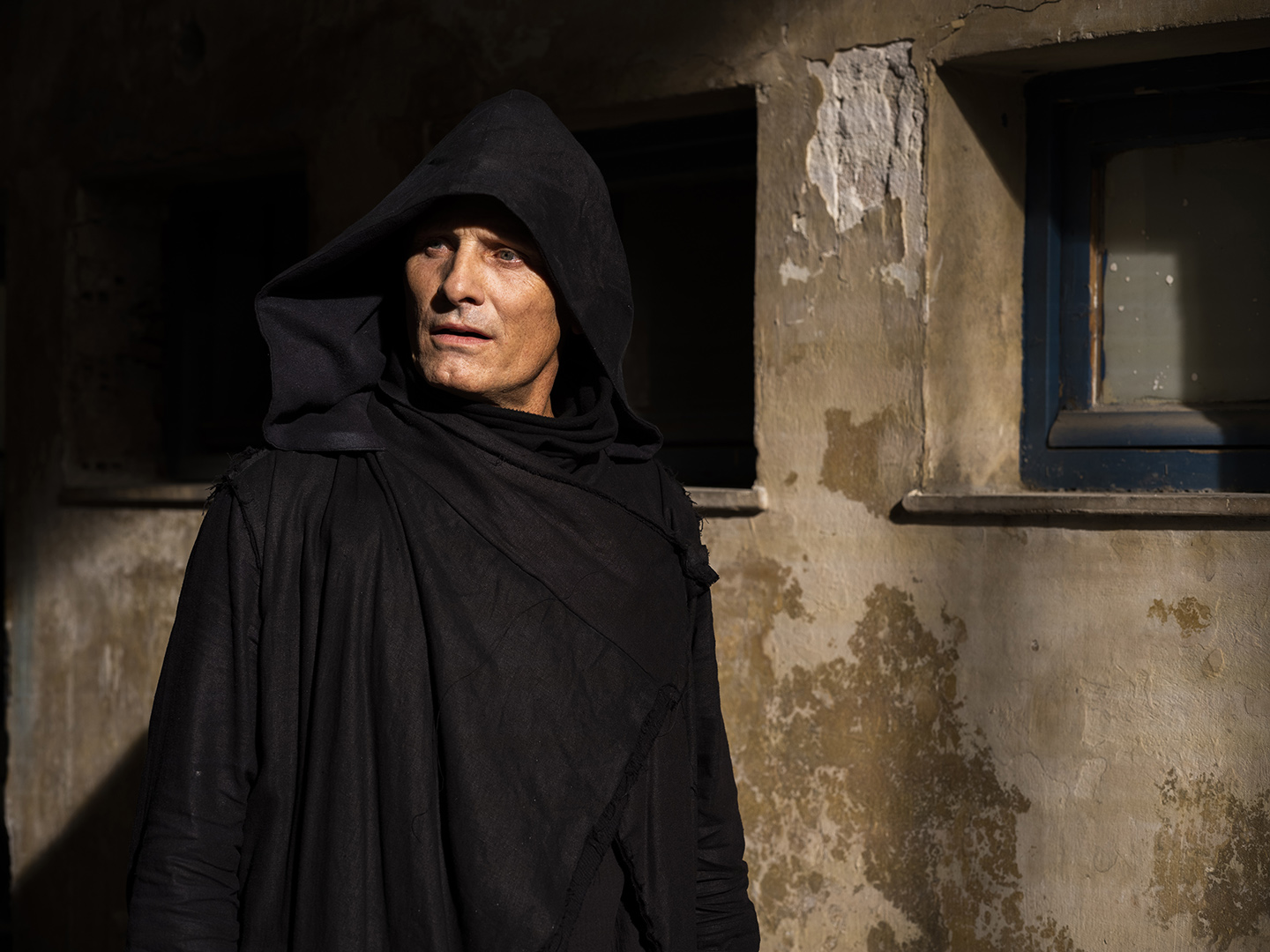
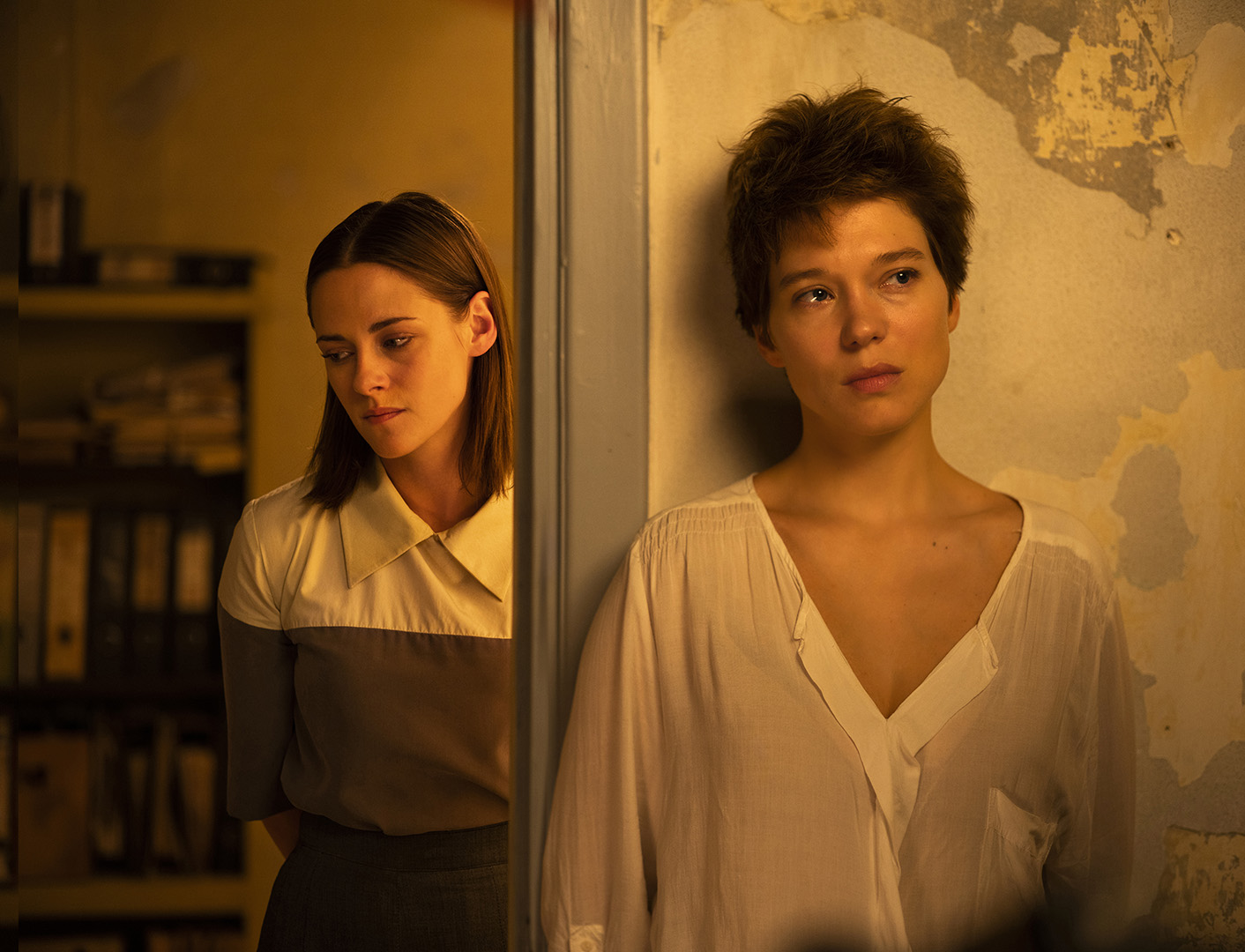



Crimes of the Future by David Cronenberg

Crimes of the Future by David Cronenberg

Crimes of the Future by David Cronenberg

Crimes of the Future by David Cronenberg

Crimes of the Future by David Cronenberg
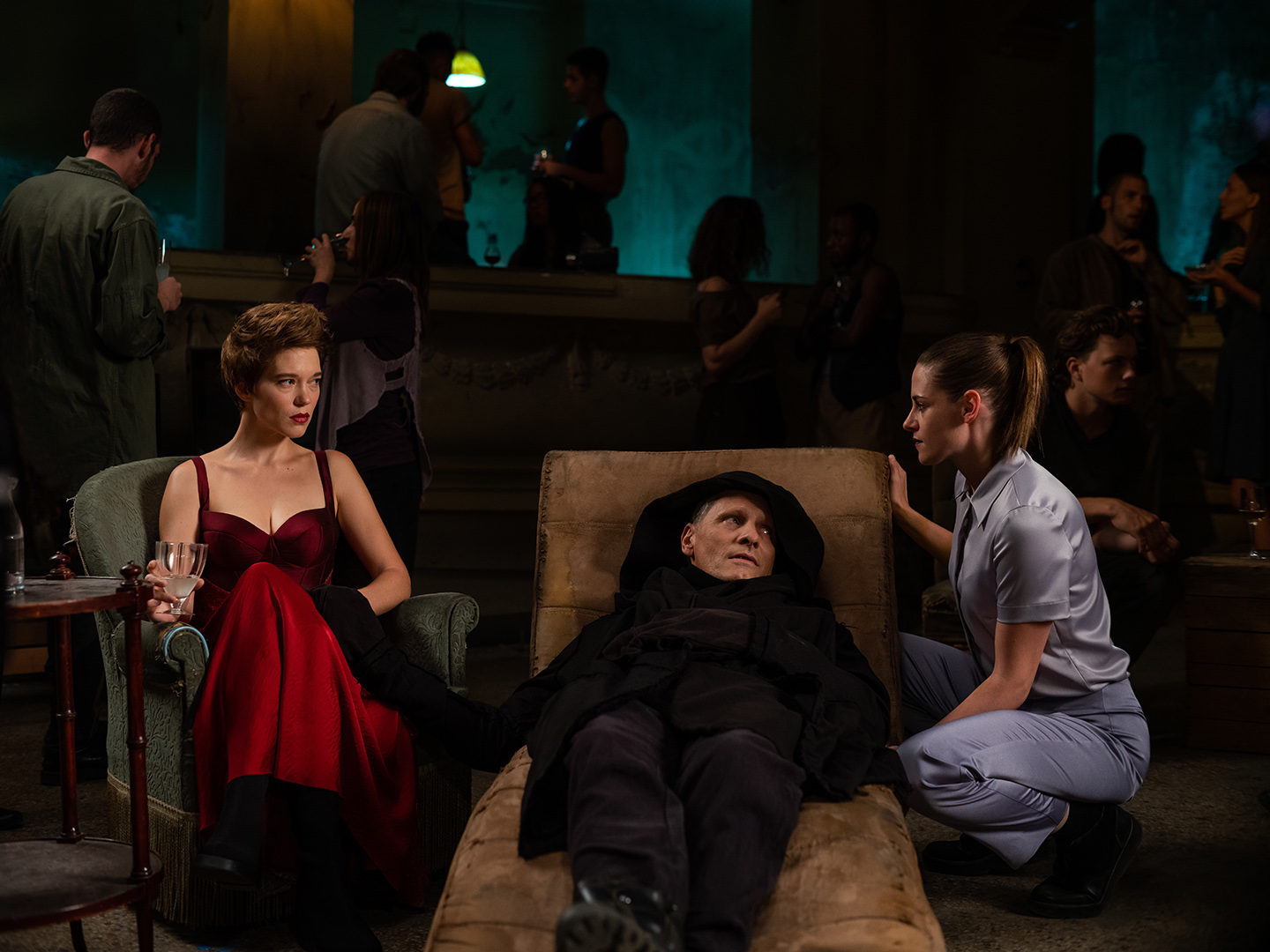
Crimes of the Future by David Cronenberg
